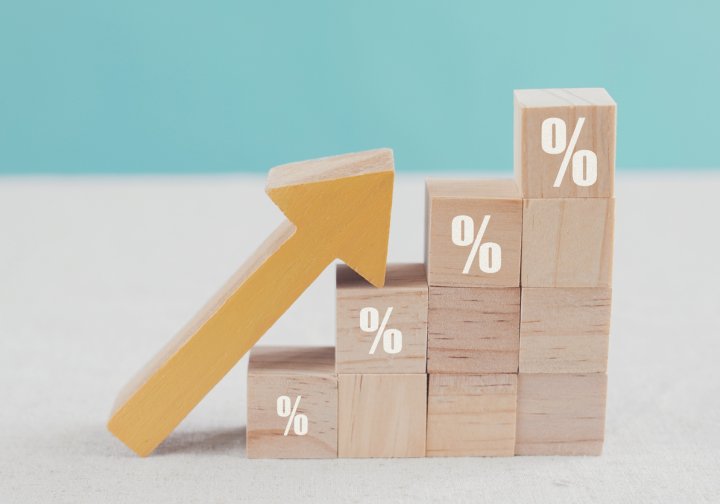Confidence among East Midlands firms is rapidly declining amid a price squeeze that is causing a “cost of doing business crisis”, new research reveals.
East Midlands Chamber’s Quarterly Economic Survey (QES), which gauges the health of the region’s economy, found that only a net 8% of companies in the region expect profitability to increase over the coming year, down from a net 31% at the start of the year.
A net 42% of those surveyed during the second quarter of 2022 anticipate turnover to improve, down from a net 62% in the previous quarter.
The findings, from a questionnaire filled out by 322 businesses across Derbyshire, Leicestershire and Nottinghamshire between 16 May and 10 June, show that the low confidence stems from weakening overseas sales and orders, alongside a flat UK market.
These issues are driven by spiralling inflation and costs for energy, raw materials, people and fuel – and are now affecting business investment, which is crucial to driving the productivity gains that can help to beat inflation.
Chris Hobson, director of policy and external affairs at East Midlands Chamber, said: “Issues with supply chains – which have been readjusting since the pandemic impact and surging demand as we emerge into this post-pandemic period – alongside changes in trading conditions resulting from the UK leaving the EU and, more recently, the impact on prices following the Russian invasion of Ukraine, have all combined to hit business confidence and activity levels.
“This dent to confidence has knock-on effects on investment, with intentions to invest in training (down 3% quarter-on-quarter) and equipment (down 6%) both being scaled back, and at a time where 40% of businesses report operating at full capacity – a record for the survey in recent times.
“The underlying concern here is, for an economy to grow, businesses need to invest. A struggling economy isn’t being driven by a lack of demand, but rather a hindered ability to respond to that demand. This in turn puts further pressure on prices, risking a situation that continues to deteriorate as the months progress.”
East Midlands Chamber QES Q2 2022 data
Key findings from the Quarterly Economic Survey Q2 2022 for the East Midlands* included:
- UK sales flatlined between Q1 2022 and Q2 2022, with a net 27% of businesses reporting these increased in both periods, while there was a net 4% drop in advanced orders between the quarters
- Overseas sales and orders were down for a net 9% and 11% for companies respectively
- While a net 11% of businesses increased their workforce in Q2, this marked a 9% drop compared to the previous quarter. Similarly, a net 33% of firms believe they will aim to increase their labour force over the coming three months, but this was 3% down on Q1
- Two-thirds (66%) of businesses attempted to recruit in Q2 but, of this cohort, four in five (82%) encountered problems with filling vacancies
- There was positive movement in cashflow, which had been down for a net 3% of firms in Q1 but had increased for a net 4% in Q2 – a 7% swing
- Six in 10 (62%) businesses expect they will be forced to raise prices over the next three months, although this was a 4% drop compared to Q1
- A lack of room at the margins means investment intentions in plant and equipment are down by 6% compared to the beginning of the year, while intentions for investing in training dropped by 3%
- Business confidence nosedived, with the proportion of businesses expecting profitability to increase dropping by 23% and those anticipating improved turnover falling by 20%
How Government can support businesses to invest and ease inflation
Chris called for the Government to urgently address key financial challenges faced by businesses that will eventually be passed on to consumers.
“Businesses need an injection of confidence to enhance their investment plans and respond to the challenges they’re facing,” he said.
“Given that many of these issues are external, this is easier said than done, but there are levers the Government can pull to support business. On fuel, it should act to further cut duty and reduce VAT applied to fuel purchases, while the HMRC mileage rate should be increased from 45p per mile to 60p.
“Small businesses should be offered greater grant support on fuel bills, similar to that received by consumers, and those struggling with repayments linked to coronavirus-associated support schemes should be given more leeway for repayments to be made.
“Finally, incentives should be given to businesses looking to invest in their people, similar to schemes that already exist for capital investment, which themselves should be extended.
“These are not usual times, but the current state of affairs is also not permanent. It is right that Government should act to introduce special measures at a time when the economy needs it, with the knowledge that once there are calmer waters ahead, businesses will continue on their growth trajectories and drive a competitive UK economy.”
To read the full Quarterly Economic Survey report for Q2 2022, click here.








